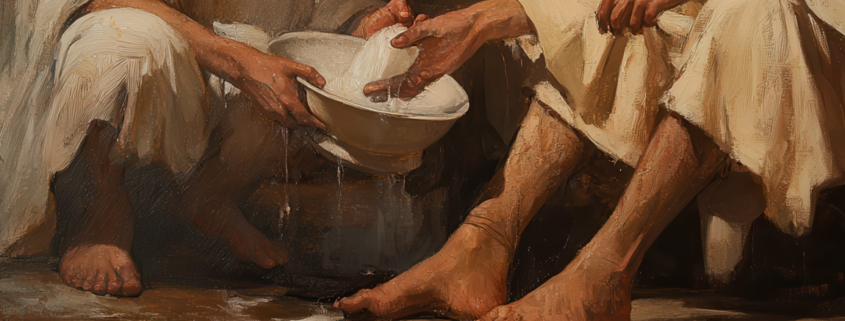How can I be sure God loves me?
The sun is shining. The sky is blue. The lake reflects the sky. The trees are deep, living green. You and your family are healthy and happy. Work has been going great. You feel like a million bucks.
Wouldn’t you agree that God loves you?
Yes, today perhaps.
But clouds may cover the sun tomorrow. The lake can look rough and angry. The leaves will fall. The world can look bleak. Today’s good health turns into tomorrow’s sickness, accident, or death. Things may go sour at work. A family’s fragile happiness can turn to dust. Horrible things like earthquakes and terrorist attacks happen in God’s beautiful world. Then you ask, “Does God still love me? How can I be sure?”
You can’t be sure by looking around in the world. In fact, there’s another complication. We all have the voice called conscience inside us. Conscience tells me that I should do right. It also tells me that sometimes I do wrong. I don’t deserve God’s love. In fact, I deserve to be punished. I can’t be sure that God loves me by looking inside myself.
No, the only way to be sure that God loves you is if he tells you so himself.
He did tell you. He sent his Son Jesus with a message for the world. No one has ever seen God, but God the heavenly Father’s Son came to earth to tell us about him. Jesus tells us that God loves the world—all people. He loves us in spite of all the wrong we do. Jesus showed us God’s love not just with words but in action. He gave his life for us.
So how can I know that God loves me? Not by my experiences in the world. Not by looking inside myself. Only God’s messenger, his own Son Jesus, can tell me for sure. The message Jesus brought is written in the Bible. The Bible brings us Jesus. Jesus says God loves us—always. His word can make us sure of that.
This is how God showed his love among us: He sent his one and only Son into the world that we might live through him. “This is love: not that we loved God, but that he loved us and sent his Son as an atoning sacrifice for our sins” (1 John 4:9-10).






